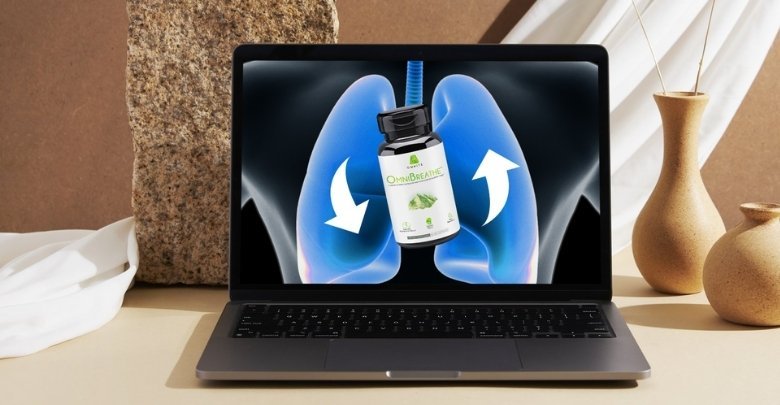It can be frustrating and uncomfortable to experience a constant feeling of mucus in the throat, which has negative consequences for your daily life and communication. If you’ve been asking yourself, “Why do I feel like I have mucus stuck in my throat all the time?” you’re not alone.
The feeling of mucus stuck in your throat, known as globus sensation, can result from postnasal drip, acid reflux, allergies, infections, or stress. It often feels like a lump, but usually isn’t caused by an actual obstruction. Identifying the underlying cause can help manage and relieve the sensation.
In the following sections of this article, we’ll dive deeper into the common causes, symptoms, and treatment options to help you manage and overcome this issue.
Why Do I Feel Like I Have Mucus Stuck in My Throat All the Time? (Top Causes)
Have you ever felt like something sticky is stuck in your throat that just won’t go away? It can feel really annoying and make talking or eating uncomfortable. Many people wonder why this happens to them all the time. If you’re curious about why this weird feeling keeps coming back, keep reading to find out more:

Postnasal Drip
Postnasal drip happens when too much mucus builds up in your nose and drips down your throat. This can make your throat feel sticky or clogged all the time. It often gets worse when you lie down or when the weather changes. Allergies, colds, or even dry air can cause it. If your throat feels slimy often, postnasal drip might be the reason.
Acid Reflux
Sometimes, stomach acid can travel up into your throat and cause a burning feeling. Along with that burning, it can make you feel like mucus is stuck there too. You might also taste something sour in your mouth sometimes. Acid reflux can happen after eating certain foods or lying down right after a meal. It’s a very common reason for throat discomfort.
Allergies
Allergies can make your body produce extra mucus to trap dust, pollen, or other allergens. This mucus can collect in your throat and make you feel like something is stuck. Even if you don’t have a runny nose, your throat can still feel clogged. Sneezing, coughing, or itchy eyes might happen too. Allergies can be worse during certain seasons.
Infections
When you get sick with a cold, flu, or other infection, your body creates more mucus. This mucus can get thick and stick to your throat, making it hard to clear. Even after you start feeling better, the mucus feeling might stick around for a while. Infections can also make your throat sore or scratchy. It’s pretty normal to have extra mucus during and after being sick.
Stress and Anxiety
Believe it or not, feeling stressed or anxious can make your throat feel tight or weird. Some people notice a lump feeling when they are nervous, even if there’s no real lump there. This is called a globus sensation. Stress doesn’t cause real mucus to build up, but it can make you more aware of your throat. It can be hard to ignore once you notice it.
Other Possible Causes
Sometimes other things like dry air, smoking, or breathing through your mouth a lot can make your throat feel sticky. Eating too quickly or not drinking enough water can also make the feeling worse. Some medications might also cause dryness or extra mucus. Everyone’s body is different, so the reason can be different from person to person. It’s important to pay attention to when and how often it happens.
How to Overcome This Situation?
When you feel like mucus is stuck in your throat all the time, it can be very uncomfortable. It can even make simple tasks like talking, eating, and breathing more difficult. When this happens, many people are unsure of what to do. Read on to find out simple techniques that will help you feel better:
Drink More Water
Keeping your body hydrated can make a big difference. When you drink enough water, your mucus stays thin and is easier to clear from your throat. Dryness can make the feeling worse and harder to ignore. Try to sip water throughout the day, not just when you feel thirsty. A well-hydrated throat feels much better and cleaner.
Avoid Trigger Foods
Some foods can make the feeling in your throat worse. Spicy, fried, and very acidic foods can irritate your throat and cause more mucus. It’s a good idea to notice if your throat feels worse after eating certain things. Choosing gentle foods like oatmeal, bananas, and cooked vegetables can help. Listening to your body can really make a difference.
Breathe Clean Air
Breathing in dirty or dry air can make your throat feel sticky and uncomfortable. Using a humidifier at home can add moisture to the air, making it easier to breathe. Try to avoid places where there’s a lot of smoke, dust, or strong smells. Opening windows for fresh air can also help when the weather is nice. Clean air helps keep your throat feeling normal.
Practice Relaxation
Stress and worry can make the feeling in your throat seem even worse. Taking deep breaths, doing simple stretches, or relaxing your muscles can help calm your body. Even listening to your favorite music or spending time outside can make you feel better. When you feel relaxed, your throat often feels better too. Small relaxing habits can make a big change.
Eat Smaller Meals
Eating big meals can put pressure on your stomach and push acid up to your throat. This can make the mucus feel even stronger. Try eating smaller portions and chewing your food really well. It’s also better to sit up straight after eating instead of lying down. Little changes like these can help you feel a lot more comfortable.
Try a Respiratory Supplement
Sometimes your body might need extra help to keep your airways clean and healthy. A natural respiratory supplement like OmniBreathe can support better breathing and help you manage mucus levels naturally. Supplements can work along with healthy habits to keep your throat feeling clear. Always check the label to make sure you’re choosing the right one for you.
Best Way to Utilize OmniBreathe for Better Lung Health
The OmniBreathe supplement can help you feel stronger and clearer in the lungs. But using it the right way can make a big difference in how well it works. Many people wonder what they should do for the best results. Here are some easy tips to help you get the most out of OmniBreathe:

Follow the Instructions
Always start by reading the label on the OmniBreathe bottle carefully. The directions will tell you how many capsules to take and when to take them. Following these steps helps your body get used to the supplement. Taking more than the recommended amount won’t speed up the results. Stick to the proper dosage for the best and safest experience.
Take It Daily
Taking OmniBreathe every day can give your body steady support. Skipping days might make it harder to feel the full effects. Pick a time each day that’s easy to remember, like with breakfast or dinner. A daily habit is simple to build and helps you stay on track. Consistency is the key to noticing positive changes.
Stay Hydrated
Drinking enough water while taking OmniBreathe can help your body process the supplement better. Water also keeps mucus thin, which can make breathing feel easier. Try to drink water throughout the day, not just when you feel thirsty. Keeping a water bottle with you can be a helpful reminder. Staying hydrated supports both the supplement and your lung health.
Pair With Light Activity
Light activities like walking or gentle stretching can help your lungs work better. Moving your body helps air flow through your lungs and may clear out mucus naturally. You don’t have to do intense workouts to feel the benefits. Just a little movement each day can make a big difference. Combining OmniBreathe with light exercise can support healthy breathing.
Avoid Smoking
If you smoke, try to cut back or quit while taking OmniBreathe. Smoking adds harmful stuff to your lungs, making it harder for the supplement to help. Even reducing the number of cigarettes can improve how your lungs feel. Avoid being around smoke whenever you can. Cleaner air helps OmniBreathe work at its best.
Be Patient
Remember, natural supplements take time to show full results. Don’t worry if you don’t notice big changes right away. Keep using OmniBreathe daily and follow the healthy habits mentioned. Small improvements can add up over time. Stay patient and give your body the time it needs.
Why Do Smokers Often Experience Persistent Throat Congestion?
Smoking brings many harmful chemicals into the body, which can damage the throat and lungs over time. These chemicals irritate the lining of the throat, making it produce more mucus than usual. When mucus builds up, it creates a feeling of constant congestion that can be hard to ignore. Many smokers often notice their throat feels blocked, especially in the morning hours.
The body tries to protect the lungs by creating mucus to trap harmful substances from cigarette smoke. Over time, this extra mucus becomes thick and sticky, making it harder to clear from the throat. Smokers may cough more often, trying to remove the mucus that feels stuck. This is why many want to find ways to clear lungs of mucus from smoking for better comfort.
Even after quitting smoking, the body may keep making extra mucus as it heals and adjusts. This can lead to ongoing throat congestion, even without new smoke entering the lungs. Drinking water, staying active, and avoiding smoky places can help reduce this feeling. Over time, the throat may begin to feel clearer as the body repairs itself naturally.
Differentiating Between Mucus and Lump in the Throat
Sometimes, it’s hard to tell if you’re feeling mucus stuck in your throat or an actual lump. Both can feel similar, but have different causes. Let’s look at some simple ways to tell them apart.
| Point | Mucus in Throat | Lump in Throat |
| Sensation | Feels like something is stuck or dripping. | Feels like a solid lump or something blocking. |
| Cause | Caused by mucus production (e.g., allergies, cold). | Caused by physical blockage or irritation. |
| Presence of Cough | Often accompanied by a cough to clear the mucus. | No cough is usually present, but the throat feels tight. |
| Time of Day | More noticeable in the morning or after eating. | More consistent throughout the day. |
| Difficulty Swallowing | It may feel harder to swallow due to the thick mucus. | Swallowing might feel painful or restricted. |
| Clearing Throat | Clearing the throat might provide temporary relief. | Clearing the throat doesn’t help much. |
| Associated Conditions | Often linked with colds, allergies, or acid reflux. | It may be linked to throat infections or growths. |
| Consistency | Mucus is usually sticky and thick. | Lump feels hard, solid, or tender to the touch. |
| Discomfort | Discomfort can be mild and temporary. | Discomfort is more constant and irritating. |
| Treatment | Usually treated with decongestants or hydration. | Might require medical attention for diagnosis. |
How Gentle Movements Can Support Better Throat Health?
When your throat feels tight and uncomfortable, you may wonder what can help. Gentle movements can actually play a bigger role than many people think. They can make breathing easier and even reduce throat discomfort. Here are some easy ways to further improve throat health with body movements:

Stretching the Neck
Simple neck stretches can help relax tight muscles around the throat. Gently tilt your head from side to side and forward. This can ease tension and improve blood flow to the throat area. Always move slowly to avoid any strain or discomfort. Doing this daily can help your throat feel less tight.
Shoulder Rolls
Shoulder rolls are easy but can bring a lot of relief. Rolling your shoulders backward and forward can reduce tension in your upper body. Less tension around your shoulders can help relax the throat muscles as well. Try doing a few rolls whenever your throat feels tight. It only takes a minute and can make a difference.
Deep Breathing
Deep breathing can calm your body and support better throat comfort. Breathe in slowly through your nose and out through your mouth. This helps open the airways and relax throat muscles. Deep breathing can also help reduce stress, which often makes throat discomfort worse. Practice for a few minutes every day.
Gentle Walking
Walking is a simple way to keep your body moving and support throat health. Gentle walking improves blood flow, which can help reduce swelling or tightness. It can also help clear mucus if that’s causing throat discomfort. Even short walks around your home or outside can help. No need for heavy exercise—just stay active.
Jaw Exercises
Moving your jaw gently can ease tension that affects the throat. Open and close your mouth slowly a few times. You can also move your jaw side to side gently. These simple exercises to clear throat congestion can be done anytime you feel stiffness. Simple jaw movements can be done throughout the day to reduce discomfort.
Posture Check
Good posture can make a big difference in throat health. Sitting or standing up straight reduces pressure on the throat area. Slouching can make breathing harder and tighten throat muscles. Check your posture while sitting, standing, and walking. A straight back can help your throat feel more comfortable.
When to See a Doctor About Persistent Throat Mucus?
Sometimes, throat mucus goes away with simple care and time. But certain signs mean it’s time to get medical help. Knowing when to visit a doctor can prevent bigger problems and ease your worries.
- Lasts Longer Than Three Weeks: If mucus stays for more than three weeks, it could be a sign of an underlying health issue.
- Blood in Mucus: Spotting blood in your mucus might signal an infection or something more serious, needing medical attention quickly.
- Severe Difficulty Swallowing: Trouble swallowing that does not improve might be linked to throat swelling or a more serious throat condition.
- Unexplained Weight Loss: Losing weight without trying can sometimes be connected to health problems involving the throat or digestive system.
- No Improvement With Home Care: If remedies like hydration and rest don’t help, it may be time for a professional medical check-up.
- Chest Pain or Tightness: Pain in the chest along with mucus can sometimes mean lung or heart issues needing urgent care.
- Persistent Hoarseness: Hoarseness that stays for weeks could point to problems with the vocal cords or throat lining.
- Shortness of Breath: Breathing trouble, along with mucus, might suggest airway blockage or lung conditions requiring prompt medical advice.
FAQs About Why Do I Feel Like I Have Mucus Stuck in My Throat All the Time?
If you still have questions about why you often feel like mucus is stuck in your throat, you’re not alone. Below are common questions many people ask that haven’t been covered in the sections above. These answers will help you better understand and manage the issue.
Is It Normal for Throat Mucus to Feel Worse in the Morning?
It’s very common for mucus to feel worse right after waking up. While you sleep, mucus can collect at the back of your throat. Lying down makes it harder for mucus to drain properly. Drinking water in the morning can help clear it out faster.
How Do Seasonal Changes Affect Throat Mucus?
Different seasons bring different allergens and air conditions, which can affect mucus levels. Spring pollen, summer dust, fall mold, and dry winter air can all cause problems. Many people notice their throat feels stickier during certain seasons. Being aware of seasonal changes can help you prepare.
Can Bad Posture Cause Throat Mucus Sensations?
Poor posture, like slouching, can put pressure on your throat and make mucus feel worse. Sitting or standing up straight allows better airflow. Good posture can also reduce feelings of tightness in your neck and throat. Simple posture checks can make a noticeable difference.
How Does Poor Indoor Air Quality Affect Mucus?
Poor indoor air, filled with dust, smoke, or chemical fumes, can irritate your throat and increase mucus. Using an air purifier can improve air quality. Keeping your home clean and ventilated can protect your throat. Breathing fresher air helps you feel better overall.
Can Singing Cause More Throat Mucus?
Singing uses a lot of throat muscles and can cause strain if done too much. This strain might make your throat produce more mucus. Staying hydrated and warming up your voice properly can prevent problems. Taking vocal breaks also helps protect your throat.
Why Does My Throat Feel Worse at Night?
Your throat can become clogged with mucus when you lie flat at night. Gravity makes drainage slower, leading to sticky feelings. Sleeping slightly elevated with an extra pillow can help. Staying hydrated before bedtime also keeps the mucus thinner.
Bottom Line
Dealing with the feeling of mucus stuck in your throat can be frustrating, especially when it affects daily activities like talking and eating. Understanding why do I feel like I have mucus stuck in my throat all the time? Is key to finding effective solutions. The causes can vary from postnasal drip, acid reflux, allergies, infections, to stress. Identifying the root cause is essential for managing and reducing discomfort.
Simple actions like staying hydrated, practicing relaxation, and incorporating gentle movements can help alleviate the sensation. In more persistent cases, seeking medical advice is crucial to rule out serious conditions. Being aware of the causes and solutions can help you regain comfort and improve throat health.






